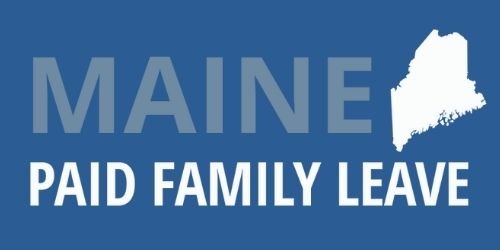Regina’s Story
My mother lost her battle with lung disease earlier this year. After multiple hospitalizations, she came home for the last time and enrolled in hospice in October 2022. Between then and her death in February, I stayed with her and served as her primary caregiver.
I am incredibly fortunate to work for an organization with humane leave policies.
When Mom went on hospice, I was allowed first to use up my considerable paid time off, which I’d accrued over nearly a decade with the organization, while being paid at my regular salary. After my PTO ran out, I was then able to access 12 additional weeks of leave at 2/3 my regular salary under the organization’s Family Leave Policy.
I cannot emphasize how critical that paid time off has been to my family in the last six months.
Without it, I am truly not sure what we would have done. It was Mom’s dearest wish to remain in her own home until she died. Even had she wanted to live elsewhere, the pathways to the kind of financial assistance she’d have needed to go into a facility were circuitous, unclear, and too lengthy to be practical given her life expectancy. Moving her into our home wasn’t an option, since the different levels of bathroom, kitchen and living areas in our small 1980s multi-level were prohibitive to someone who couldn’t navigate stairs. And we certainly could not afford the cost of round-the-clock private care. The only other available family support was my husband, who would switch off with me on the weekends so that I could go to our home for a brief recharge.
Our options were limited, even with all of the privileges of a middle class, dual-income household with no children to support. Supporting Mom to stay at home was the only real option for her by the time she went on hospice. But my husband and I had purchased the home in which she lived in 2021, when she moved to be closer to us and the help we could offer her. As we anxiously contemplated different scenarios, we kept coming back to the same indisputable truth: We had to keep her at home, yet without two paychecks, we could not afford two mortgages. There was just no way that life’s math would work without both of us bringing in money.
Leaving my job to care for Mom wasn’t a financially feasible option, and yet I also couldn’t do my job.
I know many caregivers care for their loved ones while having to work full time and then some, and I cannot fathom the cruelty of that circumstance. I try to imagine what it would have looked like, and I just can’t. How could I have been convening a meeting over Zoom, co-teaching a training session for dozens of professionals, providing comment to a reporter, or even participating in a legislative hearing – all of which are things I routinely do for my job – while at the same time helping my unsteady mom to the bathroom, coordinating visits from the hospice providers, making endless runs to Hannaford for the prescriptions that never seemed to be in on time, trying to come up with foods that would tempt her waning appetite, and monitoring her in order to administer the array of intensive medications she needed to manage her pain and shortness of breath?
I could not have been a good employee and do that caregiving work, anymore than I could have been the caregiver Mom needed while trying to do my professional job. Trying to do both would have wrecked my already struggling mental health.
I remember talking to the hospice social worker one day when I was worried about what would happen if I ran out of leave time, and she told me, “You know, many people don’t have someone who can stay with them. Many people are at home alone most of the time. We do our best to cobble it together and check on them, but they are managing on their own.” My heart, already broken, cracked a bit more at that image: Me, back at work, and Mom, trying to dose out her own Ativan when her breath once again suddenly disappeared on her, or trying to remember if it was too soon to take another dose of morphine for her pain, and what is the current dosage, anyway? Sick people deserve better than that, and so do the people who care for them.
Access to paid leave is a privilege that allowed me to care for my mother at the end of her life.
It quite literally allowed us to continue providing a roof over her head. As time passed and her steady but slow decline ground on, it allowed us – along with other family members – to pool the funds to pay for a wonderful private caregiver to stay one overnight on Saturdays, so that my husband and I could sleep at home together one night a week. This was key to my emotional and mental wellbeing, those pesky factors which our productivity-obsessed culture tends to ignore. After mom passed, my work allowed me to keep the remainder of my approved leave, recognizing that even though I was no longer caring for my mother, I had some work to do to care for myself before I could come back and join our team.
I will forever be grateful to my workplace for these many gifts. However, this kind of leave should not be a privilege that depends on the benevolence of individual employers. It should be accessible to all of us.
Have a story to tell? Visit our paid leave story form and join the conversation!

